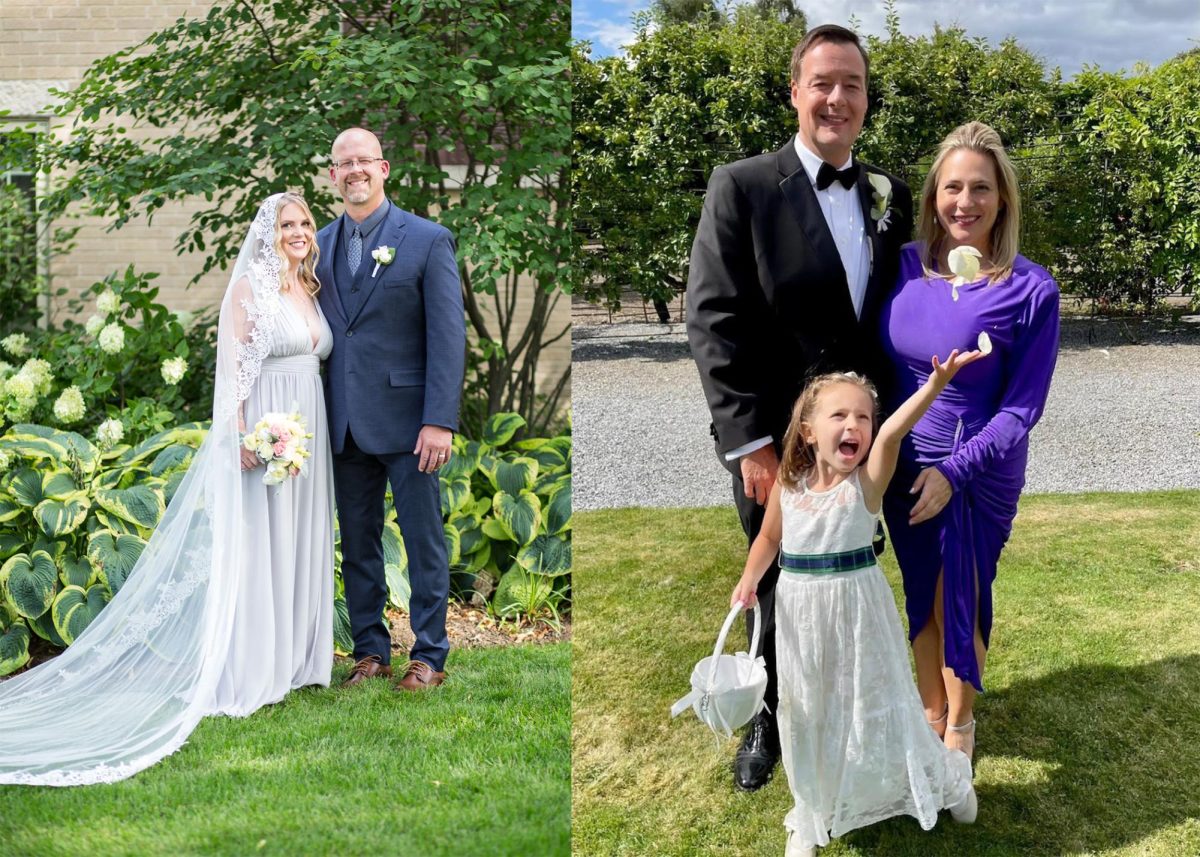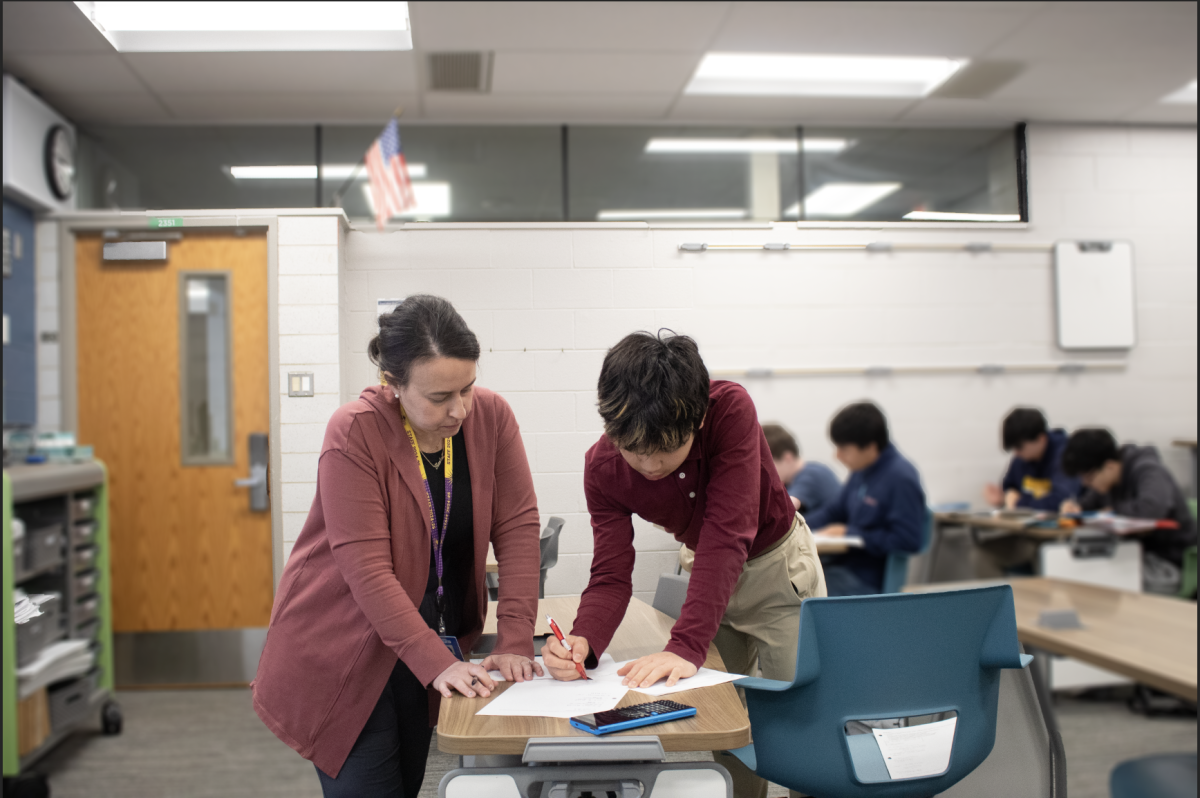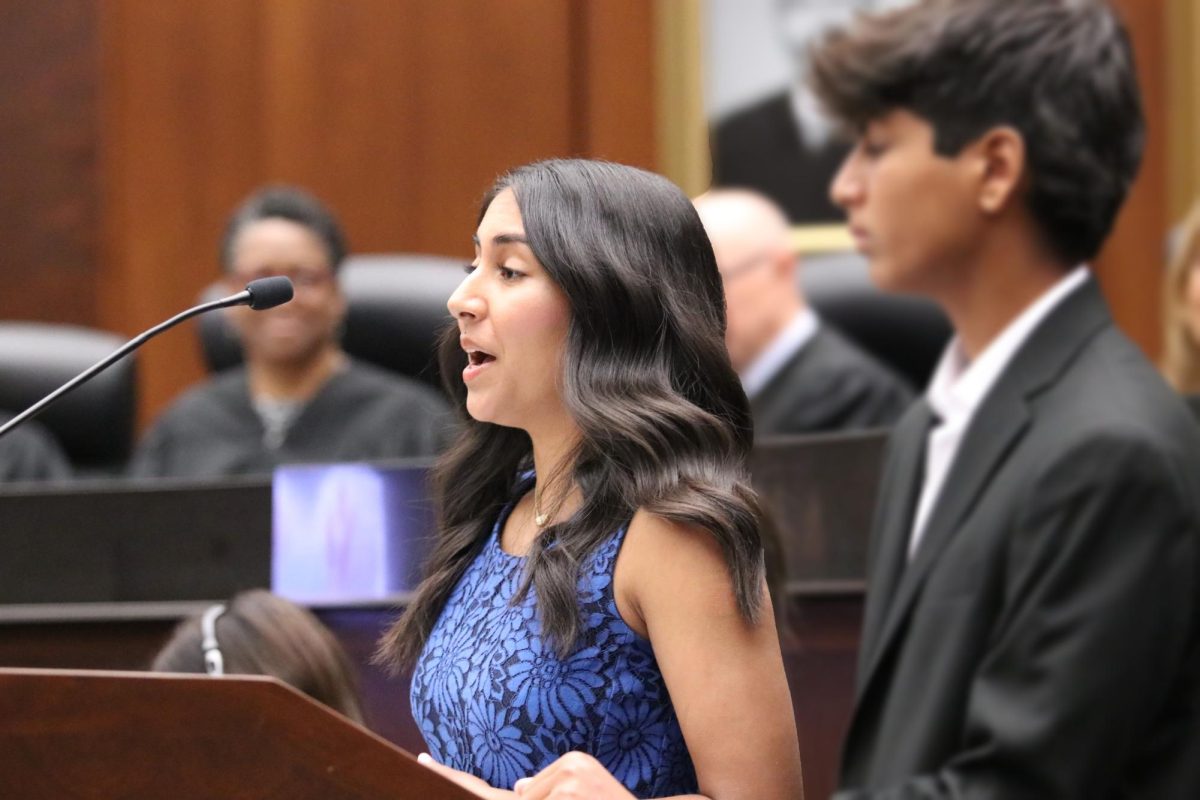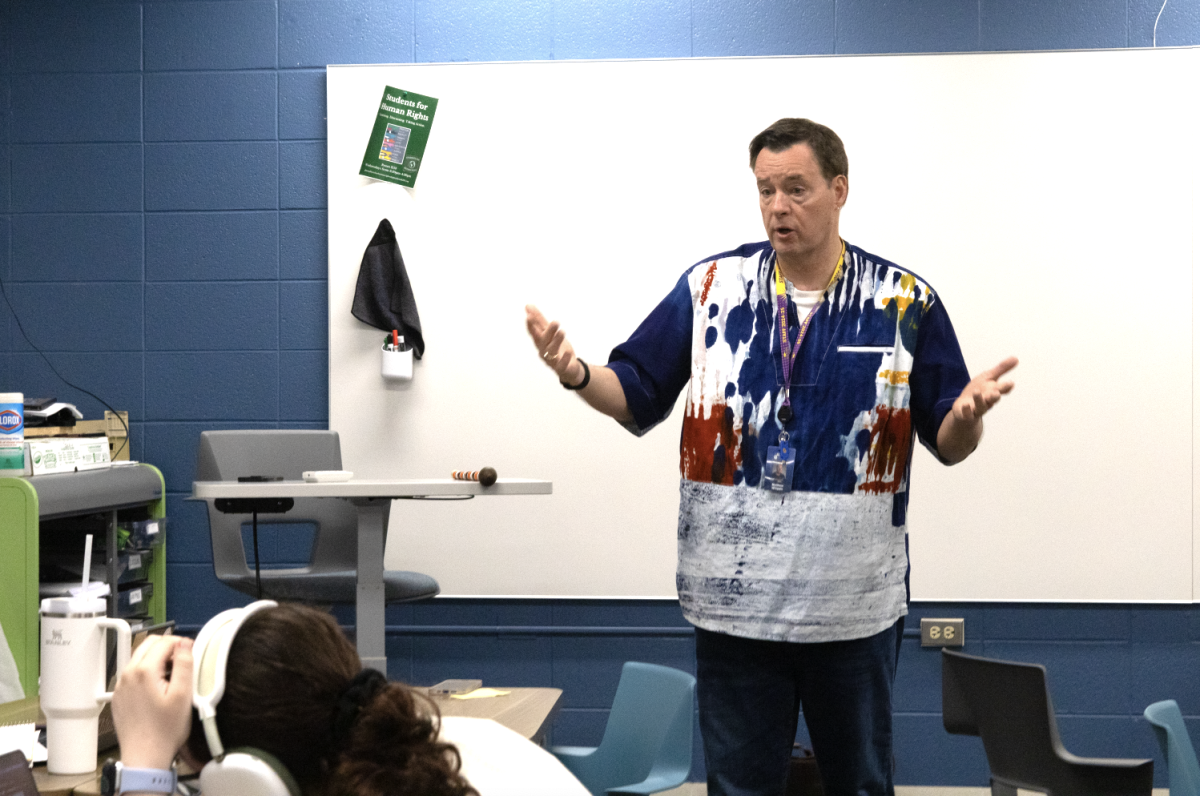From mere glances across desks to vivacious white dresses, South teachers found love within their shared passions for teaching, giving the term “high school sweethearts” a completely new meaning.
Born into a family that held education to a high regard, Matthew Whipple, Social Studies Teacher, was in awe of English Teacher Katrina Prockovic’s intelligence in the educational field. After being one of the last two people left at a South social gathering, it was apparent to Prockovic that she would soon be calling the mutual Lord of the Rings-loving Whipple, husband.
“It really was a fortuitous connection we felt and we had a lot in common,” Prockovic said.
Although Prockovic and Whipple both work at South, their paths rarely cross, Whipple explained. He noted that this was healthy due to their ability to lead separate professional lives. Similarly, Math Teacher Scott Nemecek prefers to steer clear of excessive work talk when enjoying moments with Math Teacher Elizabeth Nemecek in their personal lives.
“You want to be a good listener and you want to be a good partner,” Scott said. “But also sometimes it’s like, all right, that’s enough school talk for one day.”
Before sharing a last name, Scott and Elizabeth were mere colleagues, with friendly greetings threading the basis of their conversations, Scott explained. When sparks began to fly, the couple saw they shared more values than previously revealed. Caring for students, colleagues, and family were at the top of their priorities list, Elizabeth said.
“We’re both caring people because you have to be caring to [teach],” Elizabeth said. “You have to care about teenagers and help them learn the importance of education.”
Separate colleagues, departments, and students allow for different work experiences and fresh perspectives, Whipple explained. Whipple takes Prockovic’s suggestions to heart, implementing her ideas into his teaching. For example, they propose ways in which they can improve their teaching abilities, Whipple said. The two respect each other’s ideas and avoid excessive interference to keep a mature balance. Constructive criticism makes them better teachers as a result, Whipple expressed.
“[Prockovic] can be extremely supportive and a cheerleader, but she can also challenge you to be better,” Whipple said. “She has made me a better teacher because of that.”
Scott and Elizabeth also help each other grow as people and teachers, Scott explained. His appreciation for travel complements Elizabeth’s organization skills. Lack of time and energy stopped Scott from previously venturing out into the world, but Elizabeth took them a step further in their extravaganzas. They indirectly piggyback off of each other, evident in their classrooms and teaching styles, Elizabeth said.
“His way of getting me to think of [teaching] from a different perspective has really helped,” Elizabeth said. “Ironically he’s made me a more relaxed teacher, but now I think I’m more relaxed than he is.”
Whipple and Prockovic’s support manifests outside the classroom as well. One year, over the course of winter break, Prockovic found herself submerged in writing extensive feedback for her students. Whipple found ways to express his support of her dedication, recognizing her strengths and pushing her to recognize them too.
“[South] is an incredible place to work and two people who happen to be married have the opportunity to work with amazing students in an amazing building with amazing resources,” Whipple said. “That’s powerful.”








